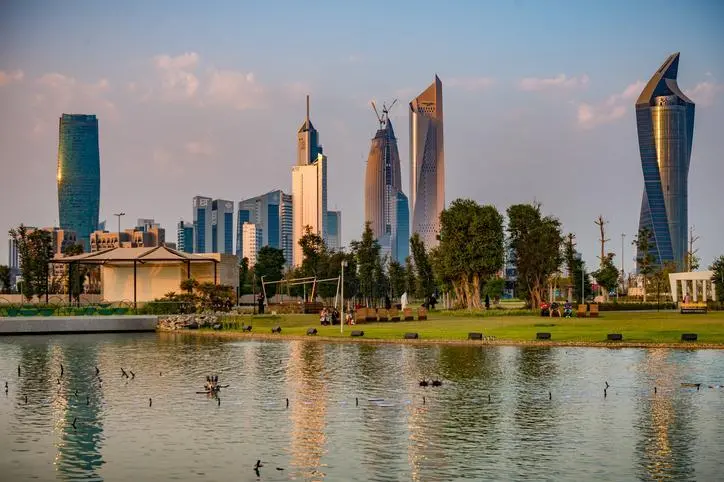PHOTO
Kuwait, which was likely the second strongest growing economies within the GCC last year, is set to register the slowest pace of growth amongst its peers in 2023, according to a new report by Emirates NBD.
"We project an expansion rate of 2.4% this year, compared with an estimated 8.0% last year, which would come in slower than our forecast weighted average growth rate of 3.2% for the GCC," Daniel Richards, MENA economist at the Dubai-based bank, said in the report.
Last month, the IMF projected real GDP growth for Kuwait to moderate in 2023 reflecting slowing external demand and oil production cuts under the OPEC+ agreement. Since the war began, the Middle East's oil producers have benefitted from the higher oil prices, with IMF itself estimating earlier this year that they would reap a windfall of up to $1.3 trillion over the next four years.
The oil exporter, which according to Bloomberg estimates cited by Emirates NBD, produced on average 2.69 million barrels per day (mbd) in 2022; representing an 11.6% increase on the 2.41 mbd produced in 2021.
The lender said in its report said that in 2023 Kuwait’s output will expand more modestly and they have penciled in oil & gas GDP growth of 2%, leaving the non-oil sector to drive headline GDP growth.
"While growth in oil production will slow, we expect that oil revenues will remain high this year, helping Kuwait repair its finances from the extended run of budget deficits which averaged 13.9% of GDP from 2015 to 2022; around 90% of Kuwait’s fiscal revenues come from oil."
Richards estimates that Kuwait's budget surplus will climb to 6.2% in 2023, from 5.3% last year, as Brent futures average $105 per barrel, according to the bank's forecasts. This is higher than Kuwait’s budgeting for a price of $80 per barrel. This recovery in the finances will reduce the urgency for Kuwait’s parliament to pass a debt law, something that they have not been able to do in recent years. The debt law is required to allow Kuwait to tap international capital markets in the event that the budget is in deficit, the report said.
While there is limited progress on reforms in the non-oil sector that would encourage private sector growth and diversification as compared with its peers, the high oil price environment and a parliament that is managing to pass budgets and legislation is a positive, the report noted. The bank has forecast real GDP growth of 3% this year for the private non-oil sector compared with an estimated 3.5% in 2022.
(Reporting by Brinda Darasha; editing by Seban Scaria)





















